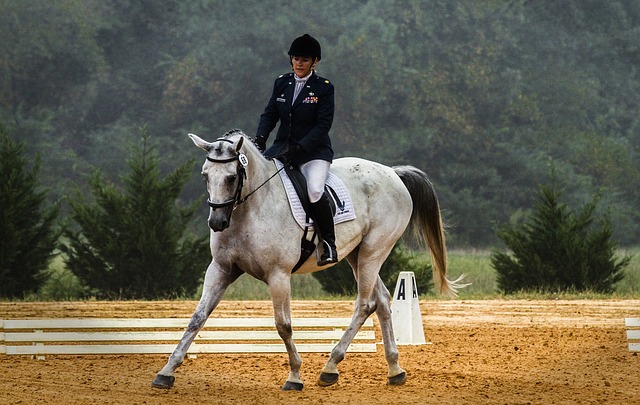If you liked this post, say thanks by sharing it.
By Larry Short, Community Ministry Director
Several weeks ago Pastor Martin shared from Luke 1 the story of Zechariah and Elizabeth, who desired a child but were childless into old age. God ultimately met their deepest desires and went way beyond them when Zechariah learned, while serving in the Temple, that his elderly wife would become the mother of the Prophet John the Baptist.
 This made me think of Abraham and Sarah. You know the story, from the pages of Genesis: God promises Abraham a son from whom the nation of Israel would derive. But Abraham and his wife grow old, with no son in sight and the possibility seeming dimmer with each passing day. They want to wait and trust God, but it seems impossible.
This made me think of Abraham and Sarah. You know the story, from the pages of Genesis: God promises Abraham a son from whom the nation of Israel would derive. But Abraham and his wife grow old, with no son in sight and the possibility seeming dimmer with each passing day. They want to wait and trust God, but it seems impossible.
So, they take matters into their own hands. At Sarah’s urging, Abraham takes her handmaiden, Hagar, who conceives Ishmael.
But Abraham and Sarah’s folly, patience and disobedience do not defeat God’s plan. Ultimately, Isaac is born.
Even when we mess up, God is still in control. His will be done.
Is a Second Chance Simply a Free Pass to “Try Again?”
So, did God give Abraham a “second chance?” The answer to that question depends entirely on what you mean by “second chance.”
If you mean that God gave Abraham a mulligan, a free pass, a chance to “try again” to get it right, then the answer is “no.” God is not a God of second chances.
But if you mean that God worked His will in Abraham’s life despite his failures, that God’s mercy and grace was new every morning (including that wonderful morning when Sarah discovered she was pregnant with Isaac); if you mean that God always gives us a second chance to believe and obey and trust Him and see Him work His will in our lives, then the answer is: “Yes! God is a God of second chances!”
Also, it’s important to note that even though God didn’t give up on Abraham and Sarah, there were still serious consequences to be paid for their disbelief and disobedience. (Due to the enmity between Isaac and Ishmael, the world is still paying those consequences, even to this day.)
Second Chances and “New Year’s Resolutions”
It’s about that time of year when many of us make “New Year’s Resolutions.” We say to ourselves: “I want to be better. I will try harder to be the kind of person God wants me to be. To be healthier, to be happier, to be whatever it is I am hoping to be.” The problem with this kind of thinking about the New Year is that it is me-centered; it assumes that my transformation will occur if I simply “try hard enough,” if I make good goals and lift myself up by my bootstraps to achieve them.
Such thinking leaves no room for God’s grace, mercy, and power. Remember, it’s not our strength and willpower that are new every morning; it is His mercies that are new every morning! He who has begun a good work in you, will be faithful to complete it. That verse doesn’t say a lot about the contribution that your own effort might make. No, it’s not up to you, is it? He will complete it.
Do We Give “Second Chances?”
But what about us? When someone hurts us, or disappoints us, or fails to live up to our expectations, do we give grace? Are our mercies to that person “new every morning?”
After washing His disciples’ feet (to their shock and dismay), Jesus says to them (in John 13): “Do you understand what I have done to you? You call me Teacher and Lord, and you are right, for so I am. If I then, your Lord and Teacher, have washed your feet, you also ought to wash one another’s feet.” We often think of these verses strictly in terms of acts of (potentially unpleasant) service, but I think the implications go far deeper. Whatever service, love, grace, and mercy Jesus showed us, we would do well to also to show one another. (Unless we consider ourselves “above our Master!”)
Speaking of Second Chances …
… and of God’s grace and mercy! You all know that last Sunday (December 24) was Elim’s “Giving Sunday” event. We committed to “give away” all undesignated funding that came in through the offering that day (providing our income to spending actuals remained “in the black” as they currently appear to be) to three worthy causes, all above and beyond our approved 2017 church budget.
Some of us were a bit concerned when we looked around the sanctuary, the morning before Christmas, and attendance seemed a bit sparse. Would Giving Sunday be a bust?
So you can imagine our excitement when we were told that the total offering last Sunday was $28,161 … nearly five times Elim’s average weekly offering, and one of our largest ever! God is so good, and we are so thankful for faithful givers who responded to His leading.
Some have asked whether there would be another opportunity (a second chance!) to contribute to the Giving Sunday project (benefiting the Future Expansion Fund, the Benevolence Fund, and the Tabitha Center ministries in the Congo). The answer is yes! If you missed out on Giving Sunday due to vacation schedules and would still like to contribute, simply designate any gift made before the end of 2017 to “Giving Sunday” and it will be included in the total.
And, as you begin the new year and consider what goals you might set or resolutions you might make, be sure to seek God and thank Him — that “His mercies are new every morning,” that He will complete the good work He has begun in you, and that His grace is enough!
Views – 385
If you liked this post, say thanks by sharing it.

 Follow
Follow
